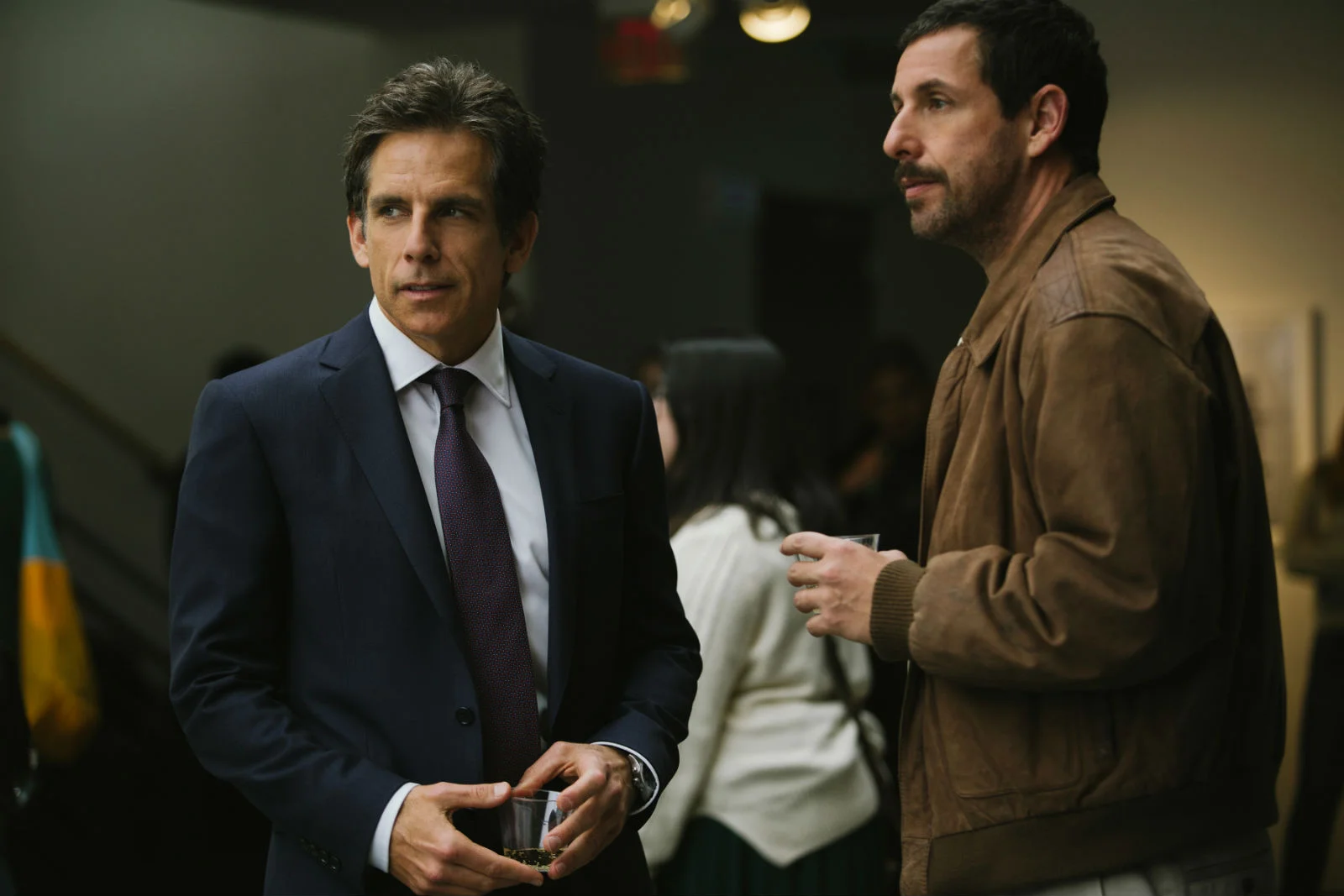Double shot: All roads lead to Psycho; Hoffman, Sandler and Stiller hit Netflix in Baumbach telefilm
By Jim Slotek
(Rating: B+)
Amid the scattershot approach to its presentation, Alexandre O. Philippe’s obsessive documentary 78/52: Hitchcock’s Shower Scene posits many things, specious and profound, about arguably the most famous horror scene of all time.
What shines through is the clear thesis that Alfred Hitchcock’s 1960 Psycho actually changed how movies were made for decades to come.
Ben Stiller and Adam Sandler, together again for the first time in The Meyerowitz Stories
It’s a remarkable assertion, especially since Psycho was the poor-stepchild of Hitchcock’s oeuvre among cineastes for a long time (but along with The Birds, the most popular). Too crass, too gory (though not really, as this doc reiterates).
About 40 expert witnesses - ranging from director/archivist Peter Bogdanovich, to film historians, to sound experts, to horrormeister Guillermo del Toro, to Jamie Lee Curtis (whose mother Janet Leigh was the female lead, if you don’t count Norman Bates’ mother) to I-don’t-know-why-he’s-there types like Elijah Wood – hold forth on the importance of Psycho, its metaphors, its surprises, its legacy.
And Psycho clearly had its impact. It was unheard of to kill a putative lead character – especially well before the movie was half over. It convinced generations of filmgoers that they’d witnessed a stabbing when they hadn’t (the sound of the stabbing, by the way, is the puncturing of a casaba melon). And it virtually created the notion of the “spoiler.”
The fact that 78/52 represents something as nerdy as the number of set-ups and shots in the famous shower scene tells you how deep this doc goes. It may lose the attention of the semi-interested, but it’s a worthwhile buzz for bona fide film fans.
"No mother! What have you done?"
78/52: Hitchcock’s Shower Scene. Directed by Alexandre O. Philippe. Opens Friday, October 13 at the TIFF Bell Lightbox.
Meyerowitz Stories Mines the ‘Dysfunctional Family’ Trope for Smart Laughs, Big Stars
By Kim Hughes
(Rating: B)
The Anna Karenina line, “All happy families are alike; each unhappy family is unhappy in its own way” is taken for a walk through the streets of New York in writer/director Noah Baumbach’s alternately tender and outrageous The Meyerowitz Stories (New and Selected), debuting on Netflix Friday, Oct. 13.
A curmudgeonly Dustin Hoffman plays family patriarch Harold, an artist in his declining years whose three adult children from two failed marriages — played by Adam Sandler, Ben Stiller, and Elizabeth Marvel — wrestle with the old man, the boozy new wife (Emma Thompson), and each other under the stifling weight of their father’s hubris. When Harold falls ill, the sibs must come to terms with each other and the rhythms of the larger Meyerowitz clan to combat lingering recriminations that will otherwise hobble them forever. Sounds familiar?
Angular relationships among oddball characters is Baumbach’s signature theme, and The Meyerowitz Stories wrings exquisite quirkiness from everyone, notably Marvel as Harold’s beleaguered mouseburger daughter, who nevertheless gets some of the film’s best lines. Multiple marquee cameos keep the sparkle quotient high, and the film is genuinely (sometimes squirmingly) funny. No stunning reveals, but filial strife has rarely been better acted.
The Meyerowitz Stories (New and Selected). Written and directed by Noah Baumbach. Starring Dustin Hoffman, Adam Sander, Ben Stiller, Elizabeth Marvel, and Emma Thompson. Debuting on Netflix October 13.


